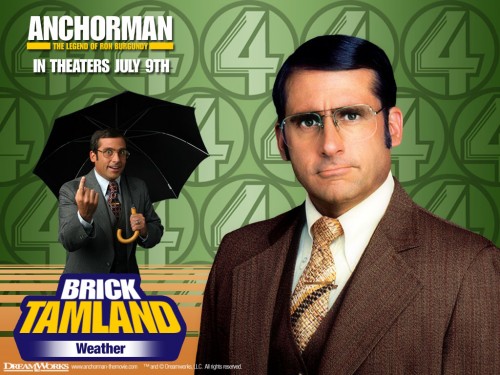That’s right, the guy (or gal) doing the weather each night on your local news station most likely doesn’t know squat about climate. They are taught how to interpret, and forecast, the weather, at most for 10 days or so. They almost certainly don’t know anything about long term climate trends according to a new survey.
He surveyed a group of TV meteorologists, asking them to respond to Coleman’s claim that global warming was a scam. The responses stunned him. Twenty-nine percent of the 121 meteorologists who replied agreed with Coleman—not that global warming was unproven, or unlikely, but that it was a scam.* Just 24 percent of them believed that humans were responsible for most of the change in climate over the past half century—half were sure this wasn’t true, and another quarter were “neutral†on the issue. “I think it scares and disturbs a lot of people in the science community,†Wilson told me recently. This was the most important scientific question of the twenty-first century thus far, and a matter on which more than eight out of ten climate researchers were thoroughly convinced. And three quarters of the TV meteorologists Wilson surveyed believe the climatologists were wrong.
In fact, anecdotal evidence of this disconnect had been accruing for several years. When a freakish snowstorm hit Las Vegas in December 2008, CNN meteorologist Chad Myers, appearing on Lou Dobbs Tonight, used the occasion to expound on his own doubts about global warming. “You know, to think that we could affect weather all that much is pretty arrogant,†he told Dobbs. “Mother Nature is so big, the world is so big, the oceans are so big.†Today’s most oft-quoted and influential skeptics include Joseph D’Aleo, The Weather Channel’s first director of meteorology, and Anthony Watts, a former Chico, California, TV meteorologist and prolific blogger who is leading a volunteer effort to document irregularities among the twelve hundred weather stations the National Weather Service maintains across the country (a concern that the National Oceanic and Atmospheric Administration considers negligible, and in any case has factored into its calculations since the ’90s). When Oklahoma Senator James Inhofe, Congress’s most reliable opponent of climate-change legislation, presented a list of more than four hundred “science authorities†who disagreed with the prevailing scientific opinion on climate change in 2008, forty-four of them were TV weathercasters. And after the signature of Mike Fairbourne, the weatherman for Minneapolis’s CBS affiliate, turned up on a similar petition that year, reporters for the Minneapolis Star Tribune called around and found that hardly any of the city’s TV weathercasters believed in climate change; one had recently called the idea “crazy†on a local talk-radio show.
……
There is one little problem with this: most weathercasters are not really scientists. When Wilson surveyed a broader pool of weathercasters in an earlier study, barely half of them had a college degree in meteorology or another atmospheric science. Only 17 percent had received a graduate degree, effectively a prerequisite for an academic researcher in any scientific field.
And thats because weather forecasting is about looking at what is happening right now, and trying to figure out with as much accuracy as possible what will happen, right after now. It doesn’t look at long term trends. Although this isn’t that suprising as most Americans (not just weather forecasters) don’t seem to know much about climate change…
